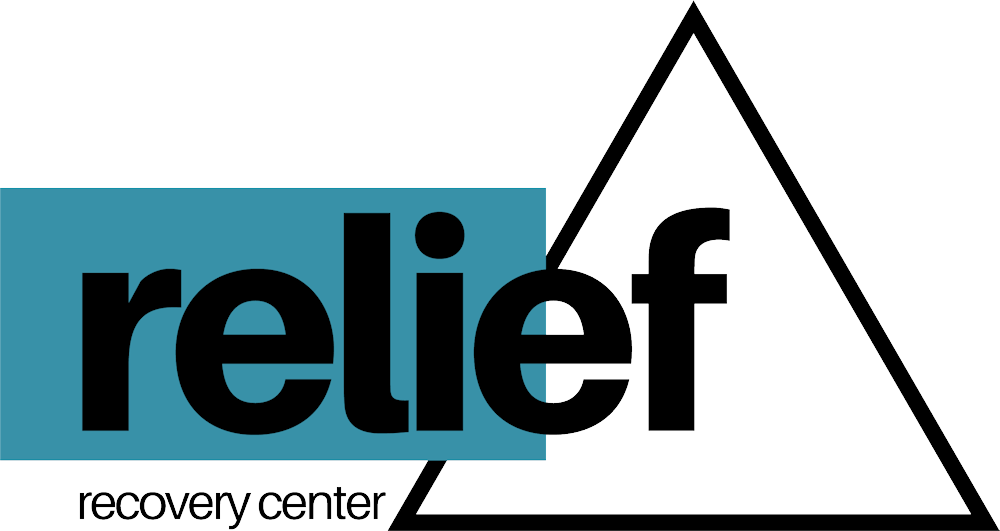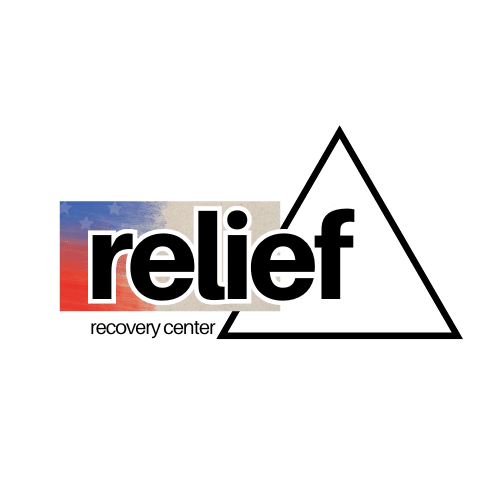Dialectical Behavior Therapy (DBT) for Addiction
Dialectical Behavior Therapy (DBT) is a structured therapeutic approach specifically designed to help individuals manage intense emotions and develop healthier coping mechanisms. By integrating cognitive-behavioral techniques with principles of mindfulness, DBT provides a comprehensive toolkit for emotional regulation and interpersonal effectiveness.
Historical Context and Development of DBT
Developed in the late 1980s by psychologist Marsha M. Linehan, DBT was originally intended to treat borderline personality disorder (BPD). Over time, its effectiveness has been recognized in addressing a variety of mental health conditions, including addiction. Its development marked a significant shift in therapeutic practices by emphasizing acceptance and change simultaneously.
The Importance of DBT in Addiction Treatment
In addiction treatment, DBT offers several advantages:
- Focus on Emotional Regulation: Helps individuals understand and manage the emotional triggers that often lead to substance use.
- Mindfulness Practices: Encourages awareness of present-moment experiences, reducing impulsivity and cravings.
- Distress Tolerance Skills: Equips individuals with strategies to handle distress without resorting to self-destructive behaviors.
Understanding DBT therapy can be a vital step toward recovery. By learning about DBT treatment options, individuals struggling with addiction can gain access to effective tools for lasting change.
Key Components of Dialectical Behavior Therapy
Mindfulness
Mindfulness plays a crucial role in addiction recovery by fostering an awareness of the present moment, helping individuals recognize triggers and cravings before they escalate. Techniques such as meditation, deep breathing exercises, and focused attention practices are employed to enhance this awareness, allowing for a more grounded response to potentially harmful impulses.
Distress Tolerance
Distress Tolerance is vital in managing difficult emotions without resorting to self-destructive behaviors. This component teaches strategies like self-soothing techniques, distraction methods, and acceptance exercises to help navigate crises without resorting to substance use. By building resilience against emotional turmoil, individuals are better equipped to face life’s challenges.
Emotional Regulation
Emotional Regulation focuses on understanding and managing intense emotions effectively. Skills in this area include identifying emotional responses, reducing vulnerability to negative emotions, and increasing positive emotional experiences. Techniques such as cognitive reappraisal and problem-solving are examples that aid in maintaining emotional balance.
Interpersonal Effectiveness
Interpersonal Effectiveness enhances communication and relationship-building skills, critical for sustaining recovery and garnering social support. By learning assertiveness, active listening, and negotiation skills, individuals can nurture healthier relationships that reinforce their recovery journey. These improved interactions contribute significantly to building a supportive network essential for long-term sobriety.
If you or someone you know is struggling with addiction and needs professional help, don’t hesitate to reach out. Relief Recovery offers comprehensive support tailored to individual needs. Contact us today to learn how we can assist you or your loved ones on the path to recovery.
The Structure of DBT Treatment
Dialectical Behavior Therapy (DBT) offers a structured approach that combines both individual therapy and group skills training to address addiction recovery. Each component plays a crucial role in enhancing the effectiveness of the treatment.
1. Individual Therapy
This component allows for a personalized approach, focusing on the unique challenges and needs of each individual. It provides a space to work through personal issues, develop specific coping strategies, and set meaningful goals aligned with one’s recovery journey.
2. Group Skills Training
Offers an opportunity for shared learning and peer support. Participants engage in exercises designed to build essential skills such as emotional regulation, distress tolerance, mindfulness, and interpersonal effectiveness. This collective environment fosters a sense of community, which is vital for sustaining motivation and commitment to recovery.
Both components are integral to DBT sessions, creating a comprehensive framework that supports individuals in overcoming addiction while building resilience and fostering long-term recovery.
Benefits of Dialectical Behavior Therapy in Addiction Recovery
Dialectical Behavior Therapy (DBT) offers substantial benefits in the realm of addiction recovery, showcasing its effectiveness through various research findings. Studies consistently highlight that DBT significantly lowers relapse rates among individuals battling substance use disorders (SUDs). By integrating skills training and therapeutic support, DBT provides a structured framework that aids in minimizing the risk of returning to addictive behaviors.
1. Alleviating Withdrawal Symptoms
A key advantage of DBT lies in its capacity to ease withdrawal symptoms and curb cravings. Utilizing mindfulness and distress tolerance techniques, individuals are equipped with tools to navigate the challenging phases of withdrawal, fostering a greater sense of control over their cravings.
2. Long-term Benefits
For those with co-occurring mental health conditions, DBT extends beyond immediate recovery needs. It delivers long-term benefits by addressing underlying emotional and psychological challenges. This comprehensive approach not only supports addiction recovery but also enhances overall mental well-being.
The tailored nature of DBT ensures that treatment is responsive to individual needs, making it a versatile option for those seeking sustainable recovery solutions. Embracing DBT’s methodologies can lead to a profound transformation, offering hope and resilience to individuals on their path to recovery.
Comparing Dialectical Behavior Therapy and Cognitive Behavioral Therapy
Cognitive Behavioral Therapy (CBT) is a well-established therapeutic model focusing on identifying and changing negative thought patterns. It aims to alter dysfunctional behaviors through cognitive restructuring, enabling individuals to adopt healthier responses to stressors. CBT for substance abuse may be the best option for those seeking quality care in modifying habitual negative thinking patterns directly related to substance use.
Key differences between DBT and CBT
The main differences between DBT and CBT approaches in treating addiction include:
- DBT (Dialectical Behavior Therapy) emphasizes acceptance and change, integrating mindfulness techniques to balance opposing forces. This dual focus makes it particularly effective for individuals with intense emotional experiences.
- CBT primarily targets specific maladaptive thoughts and behaviors without the comprehensive emotional regulation strategies found in DBT behavioral therapy.
When to choose one approach over the other
Certain scenarios may determine when one approach is preferred:
- DBT is often recommended for individuals struggling with addiction who also experience severe emotional dysregulation or borderline personality traits.
- CBT might be more suitable for those seeking a structured approach to modify habitual negative thinking patterns directly related to substance use.
Understanding these therapies ensures you can make informed decisions about the most appropriate treatment path.
Accessing Dialectical Behavior Therapy for Addiction Treatment
Understanding how to access DBT is crucial for those seeking help. DBT can be received in various settings, including both outpatient and residential programs, each tailored to meet different needs based on severity and personal circumstances.
Outpatient Programs:
Allow flexibility, enabling individuals to maintain daily responsibilities while attending therapy sessions.
Residential Programs:
Offer an immersive environment where intensive support and structure are provided around the clock.
Finding a qualified therapist trained in DBT involves several steps:
- Research: Look for therapists who are specifically certified or have advanced training in DBT.
- Consult a Directory: Utilize online directories from professional organizations that list certified DBT practitioners.
- Ask Questions: During initial consultations, inquire about their experience with addiction treatment using DBT.
Several resources exist for those seeking help:
- Online Platforms: Websites providing information and directories of licensed therapists.
- Support Groups: Community groups that offer peer support and guidance.
- Healthcare Providers: Professionals who can provide referrals or recommendations.
Practical Applications of DBT Skills in Daily Life
Understanding dialectical behavior therapy (DBT) involves recognizing its practical applications in everyday life, particularly for those recovering from addiction. Self-monitoring is a crucial component. By regularly tracking emotions and behaviors, you gain valuable insights into patterns and triggers that may lead to relapse.
Using Diary Cards for Self-Monitoring
A diary card serves as an effective tool for this purpose. It’s a simple yet powerful method of reflection and progress tracking. By documenting daily experiences, you can identify emotional trends and evaluate the effectiveness of coping strategies.
Incorporating Self-Soothing Techniques
Incorporating self-soothing techniques into your routine is another essential aspect of DBT. These methods help manage stress without resorting to harmful behaviors. Activities such as deep breathing exercises, mindful meditation, or engaging in creative hobbies can provide the calming effect needed to navigate challenging moments.
These practices not only support addiction recovery but also enhance overall emotional well-being, making them vital components of daily living with DBT.
Telephone Coaching in Dialectical Behavior Therapy
Telephone coaching in DBT provides individuals with real-time support during moments of distress. This feature of DBT allows you to connect with your therapist outside scheduled sessions, offering guidance through challenging situations. Whether you’re facing an intense craving or a difficult emotional episode, having access to immediate assistance can be crucial.
Benefits of Telephone Coaching in DBT
- Real-time Support: Facilitates immediate intervention before harmful behaviors occur.
- Crisis Management: Offers strategies to navigate crises effectively, reinforcing skills learned in therapy.
This approach not only enhances your ability to manage stress but also strengthens the therapeutic relationship by providing consistent support.
We’re Here for You
Facing addiction is a daunting journey, but you don’t have to walk it alone. At Relief Recovery Center, our team is dedicated to providing the support and guidance you need. Understanding dialectical behavior therapy (DBT) can be a crucial step in your path to recovery, offering you practical tools to manage emotions, cope with stress, and build healthier relationships.
Seeking professional help can make all the difference. Our experienced therapists at Relief Recovery Center are trained in DBT and ready to guide you through its life-changing techniques. Whether you’re dealing with substance use disorders or need assistance navigating co-occurring mental health issues, we’re here to offer compassionate care.
Why reach out?
- Personalized Support: Tailored treatment plans that address your unique needs.
- Expert Guidance: Access to qualified professionals skilled in DBT strategies.
- Comprehensive Care: A holistic approach that considers all aspects of your well-being.
Taking the first step towards recovery begins with reaching out. If you’re struggling with addiction or seeking more information on how DBT can help, contact us today. Our team at Relief Recovery Center is committed to walking alongside you, every step of the way.



